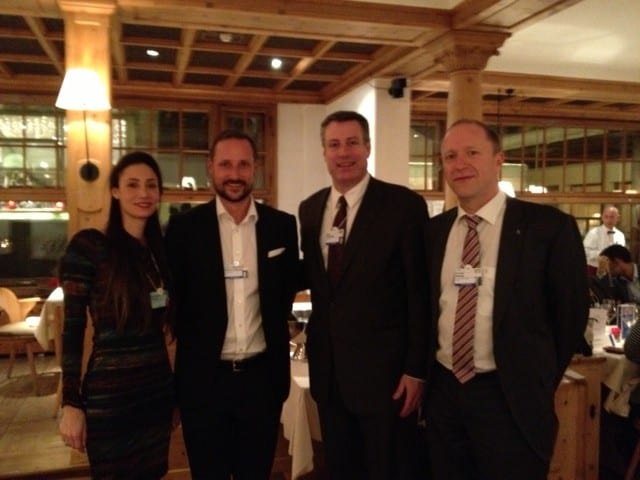Ketchum is dedicated to giving back to our communities on both a local and a global scale. As part of the ongoing exploration of emerging social responsibility models, last night I accepted an invitation to a dinner to learn more about a relatively new organization called Global Dignity. The dinner was hosted by the organization’s co-founder, Crown Prince Haakon of Norway, whom I met three years ago in Davos, and Christina Alfonso, Global Dignity’s Managing Director.
Global Dignity’s mission is to empower people with dignity. They help youth and adults to become their best selves so they can go on to help others to achieve the same. The organization conducts Dignity Days, in which facilitators ask children – ranging from disadvantaged children in developing countries to children recovering from terrible experiences in war zones to children in developed countries who are victims of bullying – to tell their stories and define dignity in their own words.

Left to right: Christina Alfonso, managing director, Global Dignity; HRH Crown Prince Haakon of Norway; Rob Flaherty; Thorkil Sonne, founder, Specialist People Foundation.
Each table selected a speaker to address the group about dignity from one perspective or another. As Global Dignity is still developing, I was asked to tell the Room to Read story – how John Wood, Erin Ganju and their team have so successfully built out their chapter system and delivered educational opportunities and life skills to more than seven million children.
Another speaker, Thorkil Sonne, is the founder of Specialist People Foundation, which has the goal of finding meaningful and productive jobs for one million people with autism. He told this story about dandelions:
When you are a child, a dandelion is a good thing – it’s fun, you play with it, blow away its seeds, make necklaces with its stems and paint your friends’ faces with its yellow flower. But what happens when you become an adult and you see one on your lawn? You hate it. In your lawn, it’s an annoying weed. You don’t want it, it doesn’t fit in. But what a lot of people don’t know is that, if moved to your herb garden, the dandelion can be an incredibly valuable plant, in everything from salads to winemaking to medicinal benefits.
Weed, flower or herb? How you view it depends on your knowledge and understanding and the context in which it’s placed.
Thorkil, whose son has autism, drew a parallel between our view of dandelions and our view of people with autism in the workforce. Quite a striking metaphor, isn’t it? His foundation helps prepare employers to manage people with autism, benefit from their unique analytical skills and reap the benefits of their other colleagues as they learn to work with people with diverse skills.
Davos is all about seeing things from a new perspective and in a new context. I thought this perspective was worth sharing.



